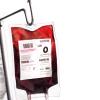US researchers have developed a new point-of-care device that quickly identifies markers of sepsis infection from a single drop of blood.

It is believed to be the first to provide rapid, point-of-care measurement of the immune system’s response, without any need to process the blood.
It is designed to identify sepsis at its onset, monitor infected patients and could potentially point to a prognosis.
The team behind the device are from the University of Illinois and Carle Foundation Hospital in Urbana, Illinois.
In a paper, they state: “Biochip measurements have shown excellent correlation with the results from flow cytometer.
“In clinical studies, we have used biochips to monitor leukocyte counts and nCD64 levels from patients’ blood at different times of their stay in the hospital.
“Furthermore, we have shown the biochip’s utility for improved sepsis diagnosis by combining these measurements with electronic medical record.”
The device counts white blood cells in total, as well as neutrophils, and measures the protein marker CD64 on the surface of neutrophils.
The levels of CD64 increase as the patient’s immune response increases.
The researchers tested the device with blood samples from Carle patients in the intensive care unit and emergency room.
When an infection was suspected, a small drop of the blood was given to the researchers and stripped of identifying information to preserve patient confidentiality.
The team was able to monitor CD64 levels over time, correlating them with the patient’s vital signs.
The results from the rapid test correlated well with the results from the traditional tests and with the patients’ vital signs.




